#Rosenberg trials
Explore tagged Tumblr posts
Text
I’m fucking sobbing at 10pm why did no one tell me about Ethel and Julius Rosenberg.
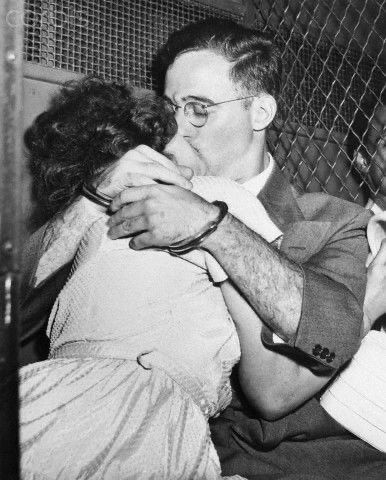
falls to my knees.
#Ethel Rosenberg#Rosenberg trials#julius rosenberg#Fun fact. Oppenheimer was a part of this case!#oppenheimer#i suppose.#MY FUCKING HEART#AHHHHHHHHHH
8 notes
·
View notes
Note
Can you draw Ocean in pajamas?

reading through my suggestion inbox rn very late of me but can you tell i love drawing ocean the most WHOOPS playing favorites here
#rtc#ride the cyclone fanart#ride the cyclone#ride the cyclone headcanons#rtc fanart#ocean o'connell fanart#ocean rtc#rtc ocean#ocean o'connell rosenberg#ocean fanart#she has a shark plushie becaise she thinks of herself as a shark#they all think thats the dumbest thing they've heard because she wouldn't last two seconds in a fight#“hey do you mind if i play some white noise to fall asleep?” and its the nixon trial#she starts reciting it from memory
163 notes
·
View notes
Text
33 seconds of the REAL Rosenberg voice without any edits (change in speed) baritone/bass sounding podge of a man
37 notes
·
View notes
Text

The Red Scare
Newly Declassified National Security Agency Memo Reveals That U.S. Government Knew Ethel Rosenberg Was Not A Spy Long Before Her Trial and Execution
A newly declassified document clarifies the truth. In August 2024, the Rosenberg sons obtained a handwritten memo from August 1950 authored by the NSA’s chief analyst, Meredith Gardner. He wrote that, based on Soviet intelligence, Ethel knew about Julius’ espionage work but “due to illness she did not engage in the work herself.” This document confirms what other sources such as the FBI had already indicated: Ethel was not a spy and “did not engage in the work” of espionage and – most importantly – U.S. government officials knew it. They knew it when FBI agents arrested Ethel on Aug. 11, 1950. They knew it when the jury convicted her nine months later. They knew it when the judge sentenced her to death on April 5, 1951. And they knew it when prison officials executed her on Friday, June 19, 1953. Now, Michael and Robert Meeropol are using the declassified memo to urge Biden “to exonerate (Ethel) Rosenberg by issuing a formal presidential proclamation saying that she was wrongly convicted and executed.
#ethel rosenberg#rosenberg trial#red scare#communism#hoover#huac#national security agency#nsa#cold war#1950s#50s
9 notes
·
View notes
Text

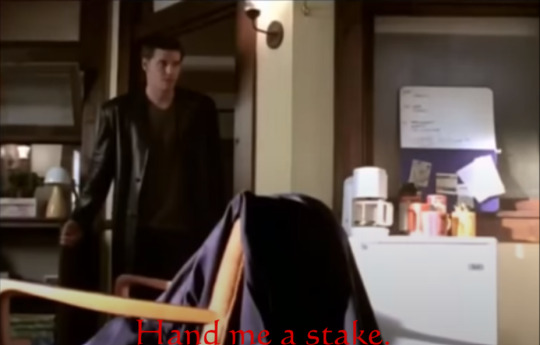

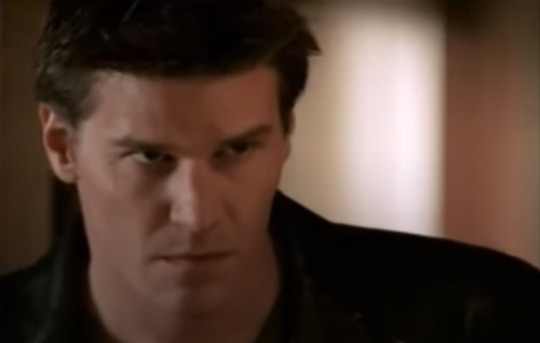
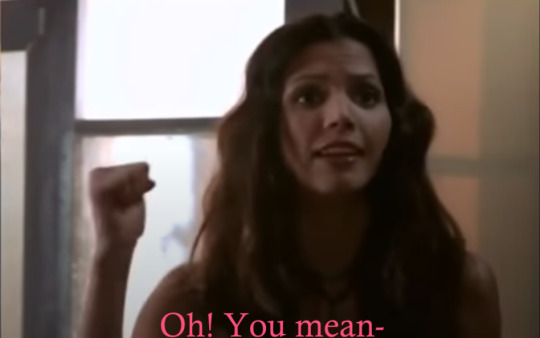
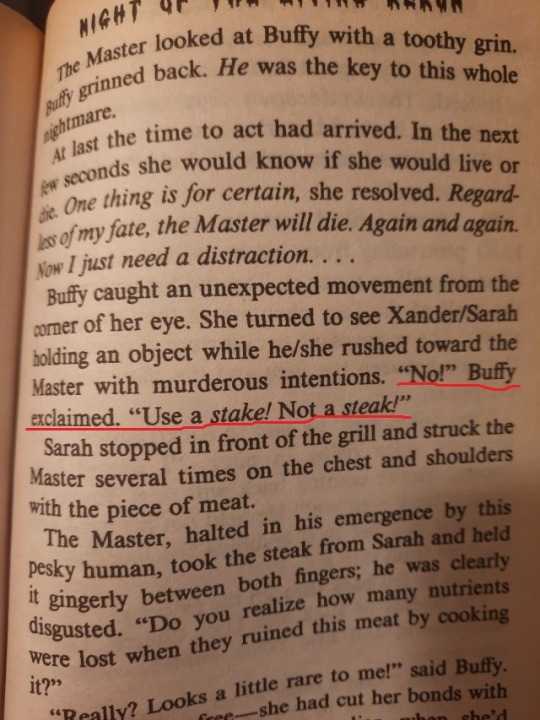
Bonus:

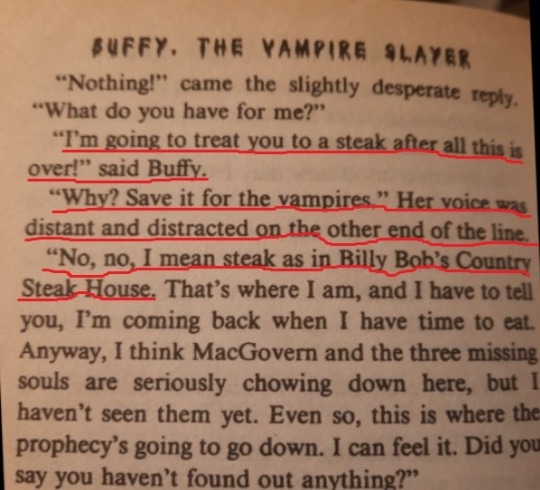
#buffy the vampire slayer#angel the series#parallels#bangel#buffy summers#angel#cordelia chase#willow rosenberg#xander harris#penn#buffy book#buffy tie-in book#night of the living rerun#if anyone wants to know what's going on with xander in night of the living rerun. as it turns out he's the reincarnation of a witch from th#salem witch trials (according to that book). it's a whole thing. and buffy's the reincarnation of the slayer from there and willow is the#reincarnation of a priest who was persecuting the witch xander was but they fell in love. and giles was reincarnated from someone too#maybe? i forget#and the master is also connected to all that#angel and cordy#angel and penn#buffy and xander#buffy and willow#angel investigations#team angel#the scoobies
15 notes
·
View notes
Text
Sorry to politics post on main but finding out just now that Donald Trump was mentored essentially by Roy Cohn boggles me
Cohn, for those not well versed on who the guy is/was [no fucking clue if hes still alive???] (i myself wasnt until on a research paper) apart of the McCarthy movement during the second red scare. He served as the prosecution in the Rosenberg trial and its genuinely just a big "oh this guy has horrible views"
I encourage reading about the Rosenbergs and also their kids and their organization by the way, its a good read and makes you question how truly fucked we were and are as a society that teaches hate and fear.
#crog ramble#politics#tw politics#yapping about politics in the year of our lord 2024#sorry yall I've been deep in the political soup#and also like#history class trial studies#i wrote 1669 words last night on the Rosenbergs#im tired
2 notes
·
View notes
Photo

Eyewitness Accounts of the Holocaust
The Holocaust was the murder of 6 million Jewish people by the SS, Gestapo, and other organisations of Nazi Germany and its allies in the years prior to and through the Second World War (1939-45). Innocent men, women, and children were shot in mass executions, or, if not too young or too old, they were sent to labour camps where they worked until they could do so no longer. The ultimate fate of millions was to die in the gas chambers of extermination camps like Auschwitz in occupied Poland.
In this article, accounts are presented by those who witnessed the Holocaust genocide firsthand, both its victims and those involved in its execution who were obliged to give evidence in, for example, the post-war Nuremberg trials of 1945-6.
Unburied Corpses, Bergen-Belsen Concentration Camp
Wislon-Oakes - Imperial War Museums (CC BY-NC-SA)
The Nazis & the Jews
Adolf Hitler (1889-1945) established himself as the dictator of Nazi Germany in 1933, and he identified Jewish people as the main enemy of the state. Based on dubious and inconsistent racial theory as propounded by such Nazi figures as Alfred Rosenberg (1893-1946), Hitler and the Nazi Party began a propaganda campaign against German Jews, which presented them as an inferior race who were holding Germany back from achieving its full economic potential.
Hitler wanted to remove all Jews from German territory, but the first step was to identify who exactly was a Jew. The 1935 Nuremberg Laws loosely identified Jews since even having a single Jewish grandparent placed an individual in that category. A series of 'solutions' to what Hitler called the "Jewish problem" were rolled out, such as encouraging emigration and persecuting Jewish business owners. Jews were then attacked in such pogroms as the Kristallnacht of November 1938. Next, Jews were rounded up and obliged to live in segregated areas such as ghettos in cities or in concentration camps. Jews were deprived of citizenship and other basic rights.
From 1942, the Nazis began what was secretly described as the 'Final Solution', that is the plan to murder all European Jews. Jews were transported to labour camps where they worked on state projects until they died from disease, extreme malnutrition, or physical exhaustion. Other Jews, and those who could no longer work or were too young or too old to work, were transported directly to death camps like the Auschwitz-Birkenau complex in occupied Poland where they were killed in gas chambers and their remains were communally cremated. Jews were not the only victims since the Nazis also targeted Romani people, Communists, Jehovah's Witnesses, Freemasons, homosexuals, political rivals, prisoners of war, and those with physical or mental disabilities, amongst others. In addition, hundreds of thousands more victims were murdered in mass executions in occupied territories during the Second World War by mobile killing squads known as Einsatzgruppen. The Jews made up by far the majority of those killed, and it is estimated that 6 million died in what is today called the Holocaust. The sheer scale of the Nazis' programme means that determining the precise number of victims is not possible.
Arrested Jews, Baden-Baden
Bundesarchiv, Bild 183-86686-0008 (CC BY-SA)
Hugh Greene, a British newspaper journalist, recalls what he saw of the Kristallnacht in 1938:
I was in Berlin at that time and saw some pretty revolting sights – the destruction of Jewish shops, Jews being arrested and led away, the police standing by while the gangs destroyed the shops and even groups of well-dressed women cheering.
(Holmes, 42)
Avraham Aviel, a Polish Jew and survivor of a mass execution, gives the following account of his experience in May 1942:
We were all brought close to the cemetery at a distance of eighty to a hundred metres from a long, deep pit. Once again everybody was made to kneel. There was no possibility of lifting one's head. I sat more or less in the centre of the town people. I looked in front of me and saw the long pit then maybe groups of twenty, thirty people led to the edge of the pit, undressed probably so that they should not take their valuables with them. They were brought to the edge of the pit where they were shot and fell into the pit, one on top of another.
(Holmes, 319)
An anonymous survivor from a ghetto massacre in Lviv, Ukraine, in August 1942 gives the following description of its aftermath:
I went with my mother to the office of the Jewish community regarding an apartment and there in the light breeze, dangled the corpses of the hanged, their faces blue, their heads tilted backward, their tongues blackened and stretched out. Luxury cars raced in from the center of the city, German civilians with their wives and children came to see the sensational spectacle, and, as was their custom, the visitors enthusiastically photographed the scene. Afterwards the Ukrainians and Poles arrived by with greater modesty.
(Fiedländer, 436)
Nazi Classification of Jewish People
VolksVeritas (CC BY-SA)
Rivka Yoselevska, a Polish Jew, describes her experience and that of her family in the Hansovic ghetto massacre in August 1943:
Some of the younger ones I got out naked covered with blood…I was still alive. Where should I go? What should I do?
(Holmes, 320-1)
The SS lieutenant-colonel Adolf Eichmann (1906-1962), in charge of the Final Solution's transportation requirements, here lies to Jews to make sure they do not create trouble as they are transported by train from a ghetto to the concentration camps:
Jews: You have nothing to worry about. We want only the best for you. You'll leave here shortly and be sent to very fine places indeed. You will work there, your wives will stay at home, and your children will go to school. You will have wonderful lives.
(Bascomb, 6)
The death camps were deliberately located in remote Poland to provide the Final Solution project more secrecy. Rudolf Höss (1901-1947), a camp commandant at Auschwitz, stated:
We were required to carry out these exterminations in secrecy, but of course the foul and nauseating stench from the continuous burning of bodies permeated the entire area and all of the people living in the surrounding communities knew that exterminations were going on at Auschwitz.
(Neville, 49)
New Arrivals at Auschwitz
Bernard Walter (Public Domain)
The typical conditions of the train journeys to the camps are described here by Avraham Kochav, an Auschwitz survivor:
There were twenty to twenty-five cars in every train…I heard terrible cries. I saw how people attack other people so as to have a place to stand, how people push each other so that they could stand somewhere or so that they could have air for breathing. It was terribly, terribly stifling. The first to faint were the children, women, old men, they all fell down like flies.
(Holmes, 332)
Zygmunt Klukowski, a Polish hospital director, describes the train journeys for Jewish people sent to the Belzec extermination camp in occupied Poland:
On the way to Belzec the Jews experience many terrible things. They are aware of what will happen to them. Some try to fight back. At the railroad station in Szczebrzeszyn a young woman gave away a gold ring in exchange for a glass of water for her dying child. In Lublin people witnessed small children being thrown through windows of speeding trains. Many people are shot before reaching Belzec.
(Friedländer, 358)
Yaacov Silberstein, a Jewish teenager, describes his arrival at Auschwitz in October 1942:
When we arrived we saw how the Jews were running to the electrified fence. There they stuck. They were tired of life; they could not continue in this fashion.
(Holmes, 330)
Dr Lucie Adelsberger, a prisoner of Auschwitz, describes the processing of new arrivals destined for the labour camps:
We undressed, had our hair cut – no actually our heads were shaved to stubble; then came the showers and finally the tattoos. This was where they confiscated the very last vestiges of our belongings; nothing remained…no written document that could have identified us, no picture, no written message from a loved one. Our past was cut off, erased…
(Cesarini, 656)
Aerial View of Auschwitz
South African Air Force (Public Domain)
Bernd Naumann, a survivor from the Birkenau camp, describes the prevalence of rats in the camp:
They gnawed not only at corpses but also at the seriously sick. I have pictures showing women near death being bitten by rats.
(Neville, 50)
Seweryna Smaglewska, a prisoner in the Birkenau women's camp, describes the living conditions there:
There were no roads, no paths between the blocks. In the depths of these dark dens, in bunks like multi-storied cages, the feeble light of a candle burning here or there flickered over naked, emaciated figures curled up, blue from the cold, bent over a pile of filthy rags, holding their shaved heads in their hands, picking out an insect with their scraggly fingers and smashing it on the edge of the bunk – that is what the barracks looked like in 1942.
(Cesarini, 528)
The SS, which managed the camps, made sure there was a hierarchy amongst the prisoners such as trustees who survived a little longer than the rest by being 'favoured' with certain duties such as burning the bodies in the crematoriums or beating other prisoners. SS Lance Corporal Richard Bock, a guard at Auschwitz-Birkenau, recalls:
A block chief would call out the kapo very fiercely, 'Kapo, come here.' The kapo came over and – boom – he hit the kapo in the face so hard that he fell over…And then he said, 'Kapo, can't you beat them any better than that?' And the kapo ran off and grabbed a club to beat up the prisoner squad quite indiscriminately. 'Kapo, come over here,' he shouted again. The kapo came and he said, 'Finish them off,' and then he went off again and he finished the prisoners off, he beat them to death…a kapo had to beat and club to save his own life.
(Holmes, 325)
Luggage of Auschwitz Victims
Jorge Láscar (CC BY)
Those meant for the gas chambers were often unaware of their fate. Bock describes the procedure that he witnessed with a colleague called Holbinger who was responsible for the Zyklon B tins that would produce the lethal gas:
…the new arrivals had to get undressed, and then the order came, 'Prepare for disinfection'. There were enormous piles of clothing…Lots of them hid their children under the clothes and covered them up and then they shouted, 'Get ready' and they all went out, they had to run naked approximately twenty yards from the hall across to Bunker One. There were two doors standing open and they went in there and when a certain number had gone inside they shut the doors. That happened about three times, and every time Holbinger had to go out to his ambulance and they took out a sort of tin – he and one of his block chiefs – and then he climbed up the ladder and at the top there was a round hole and he opened the little round door and held the tin there and shook it and then he shut the little door again. Then a fearful screaming started up and approximately after about ten minutes it slowly went quiet…They opened the door…then a blue haze came out. I looked in and I saw a pyramid. They had all climbed up on top of each other…They were all tangled, they had to tug and pull very hard to disentangle all these people.
(Holmes, 334-5)
Dov Paisikowic, a Russian-Jewish survivor of Auschwitz, was part of the team responsible for taking bodies out of the chambers, removing valuables such as rings and gold teeth, and then taking the corpses to the crematoria. He recalls:
…the doors were suddenly opened to the gas chambers. People, naked people, started falling out. We were all frightened, no one dared ask what it all was. We were immediately taken to the other side of this house and there we saw hell on this earth – large piles of dead people, and people dragging these dead to a long pit, about thirty metres in length and ten metres in width. There was a huge fire there, with tree trunks. On the other side fat was being taken out of this pit with a bucket.
(Holmes, 335)
Thousands of detainees in the camps were subjected to unnecessary and often horrific medical operations and experiments. One of the most infamous SS doctors was Josef Mengele (1911-1979), who performed all kinds of macabre operations at Auschwitz. Mengele was, though, only one part of a large SS medical team, which operated in many different camps. Dr Franz Blaha, a Czech detainee at the Dachau concentration camp, was obliged to work in this area of Nazi terror, specifically performing autopsies. Blaha reported:
From the middle of 1941 to the end of 1942 some 500 operations on healthy prisoners were performed. These were for the instructions of the SS medical students and doctors and included operations on the stomach, gall bladder and throat. These were performed by students and doctors of only two years' training, although they were very dangerous and difficult….Many prisoners died on the operating table and many others from later complications…These persons were never volunteers but were forced to submit to such acts.
(MacDonald, 59)
Auschwitz Bunks
Bookofblue (CC BY-SA)
Hertha Beese, a Berlin housewife and underground resistance worker, recalls that, unlike the general public, the resistance network was more informed about the camps. She states:
We knew that the concentration camps existed. We also knew where they existed, for example Oranienburg just outside Berlin. We sometimes knew which of our friends were there and we also knew of the cruelties in them right from the beginning.
(Holmes, 315)
Anthony Eden (1897-1977), British Foreign Secretary during WWII, notes:
…as the war progressed some horrifying reports began to come out. At first it was very difficult to assess their accuracy and they were so horrible it was hard to believe they could be true.
(Holmes, 314)
Wynford Vaughn-Thomas, a British journalist, recalls the conditions of the Bergen-Belsen concentration camp in Germany when it was liberated in 1945:
In the huts typhoid, everything, had broken out and you couldn't hear yourself speak for the death rattle. There were people lying on top of each other, sick, vomiting, withered bodies crawling on their hands and knees…It was sealed off in this dark north German plain and you felt you'd reached the cesspit of the human mind.
(Holmes, 337)
Mass Grave, Bergen-Belsen Concentration Camp
H. Oakes-Imperial War Museums (Public Domain)
The British Lieutenant Colonel J. A. D. Johnson described what he saw when he arrived at Bergen-Belsen:
The prisoners were a dense mass of emaciated apathetic scarecrows huddled together in wooden huts, and in many cases without beds or blankets, and in some cases without any clothing whatsoever…There were thousands of emaciated corpses in various stages of decomposition lying unburied. Sanitation was to all intents and purposes nonexistent.
(Cesarini, 759)
Hans Stark, Gestapo staff member at Auschwitz, stated, like so many others, that he had merely been following orders:
I took part in the murder of many people…I believed in the Führer, I wanted to serve my people. Today I know that this idea was false. I regret the mistakes of my past, but I cannot undo them.
(Neville, 57)
Rabbi Frankforter, who died in the Holocaust, which Jewish people often call the Shoah or Ha-Shoah in Hebrew, gave this last wish to survivor Yaacov Silberstein:
You are still young and you will remain alive. I have only one request for you that you should never let people forget. Tell everyone what they did to us at this small camp, in Buchenwald. Wherever you go tell this, also to your children so that they should pass it on. To remember and not to forget.
(Holmes, 339)
Continue reading...
182 notes
·
View notes
Text
So, I've been thinking a lot about that "he destroyed mine" line of Scott's in X-Factor. I'm stealing the scan from @rei-ismyname here, sorry!

So...here's the thing. It doesn't really work for me.
This is probably a surprise, since I'm one of the biggest Xavier haters that I know. If Xavier has no haters then I am dead, et cetera.
And as an incredibly biased Cyclops fan, I am always big on deconstructing their relationship and exactly what Xavier had done to him and how it plays into Scott as the man he is today.
But I really don't think that this is how Scott sees their relationship. Even at their worst.
The biggest issue, of course, is that Scott Summers is probably the ONE member of the Original Five that Xavier genuinely saved from a far worse situation that was never going to get better.
At the time that Xavier met Scott, the latter was being beaten, abused and used by a weapon by Jack Winters, a thug with telepathy and an unbreakable diamond form. Xavier got him out of there, and depending on the version that you're reading, even assisted him with KILLING Jack to save their lives.
Now, Jack was a thug. His power level is hard to judge in a few appearances, but he wasn't particularly intelligent. It's very probable that at some point, Scott would have gotten away.
But then there's Mr. Sinister. He ran the orphanage Scott escaped from, and unlike Jack, is undoubtedly a very powerful man. There's a reason that, in the timeline that Xavier dies early, Scott's working as Sinister's right hand man. (Albeit one who is eventually revealed to have his own, secretly altruistic agenda.)
If Sinister wanted Scott back, Jack Winters was NOT going to be an obstacle. And Scott, on his own, would have been easy pickings. Charles Xavier, though, has more than enough power, both psychically and materially, to protect this child.
Of course, this doesn't make him a saint. The fact that he, by his own admission, took this already abused child and decided to make him the vanguard of his child army is pretty inexcusable. Xavier only succeeds in being the best of Scott's terrible father figures because of the competition.
(I've mentioned before, but this context does make Scott's treatment of poor Laura Kinney in the 00s make perfect sense. They have, when you actually look at it, remarkably similar backstories. Xavier "helped" him by using him as a weapon for a good cause, so Scott's thinks he's doing the same thing for Laura. And it's, instead, incredibly fucked up.)
So anyway, I think Scott rightfully has a lot of things to be angry at Xavier about. Xavier used him, manipulated him, over and over again. At least as far as we can tell, he never got the poor kid any real help for any of his massive traumas.
But the line still bothers me.
Maybe it's an issue of semantics. "He destroyed mine!" seems to indicate that Scott had something good going on before Xavier got into the picture, that Xavier then ruined. As opposed to what generally tends to happen, which is that Scott's already in a terrible position that Xavier takes advantage of.
And to be honest, I'm not really sure when that would be.
AvX was fucked before Xavier got into the picture, and while killing Xavier gave everyone a reason to turn on Scott, I'm not sure they wouldn't have found some OTHER reason to turn on him anyway.
Scott's position in the Rosenberg run was pretty bleak all around. We do get to see the very end, when the X-Men finally return and have a happy reunion. But it seemed like Krakoa started right afterward, and for all its faults, Krakoa was a time when Scott got to be with his wife, and raise his son, and spend time with his brothers, daughter, and even implicitly his granddaughter.
And while Scott DID end up on trial for everything that Krakoa did, something he could reasonably be angry at the entire Council for, this was in the context of Krakoa's fall. And Xavier's betrayal came later.
Now, in Raid on Graymalkin, Scott was FURIOUS about the deaths on the ship whose name I can't remember. Now, we know that, per From the Ashes's Infinity Comic, Xavier had populated that ship with mindless clones. But we did see him telepathically force Scott to watch him do it, without any explanation, so he's pretty fucked up about it.
That makes sense to me. "He killed a lot of people!" is incorrect but makes sense. "He destroyed a lot of lives!" makes sense. "He did a lot of fucked up shit to me!" makes sense. "He destroyed mine!" really doesn't.
(It might for JEAN. While Xavier did initially help her out of that coma as a kid, everything else - getting her to join the X-Men, sending her into space, and so on...that could fit. So one possible wilder interpretation could be that Scott is channeling his wife at the moment? But I don't think she's as inclined to Summers family fisticuffs.)
I mean, it's a throwaway line in a comic that's already ending. It's perfectly feasible as just Scott being a bit incoherent, exacerbated by Xavier's weird telepathic virus effect. But I like overly dissecting things on a regular basis, so here we are.
68 notes
·
View notes
Text
Sebastian Stan Shows His Range in New Films 'The Apprentice' and 'A Different Man'
The 'Pam & Tommy' star appears unrecognizable in two projects that prove he's a master of transformation
JASMIN ROSEMBERG

"I have these very vivid memories,” says 42-year-old actor Sebastian Stan of growing up in Romania during the 1989 revolution.
“One of them being this Dacia car, driving by with screaming people holding the flag. The flag had a hole in the middle, which they had cut out — [erasing] the communist symbol at the time. And then I remember being on my couch with my mom and my grandmother and neighbors, watching Ceausescu be shot.”
What propelled them was the “obsession” Eastern Europeans had with the American Dream. “All I ever heard about was America: the land of the free, the land of opportunity,” says Stan, who at 8, moved with his mother — a pianist, who named him after composer Johann Sebastian Bach — to Vienna before heading to the U.S.
“I remember coming to this country when I was 12 with my mom and seeing the big Twin Towers of New York City and feeling overwhelmed,” Stan says. “And my mom looking at me and saying: “Now you have a chance to become someone.”

Stan takes a seat in an Amiri look with a ring by The Crown Collective.
The memories rushed back to him in 2019, when he was first reading the script for The Apprentice — the biographical film about Donald Trump directed by Iranian-Danish filmmaker Ali Abbasi (Holy Spider, The Last of Us) and penned by Gabriel Sherman (who wrote the Roger Ailes biography The Loudest Voice in the Room).
“I was intrigued there was a movie being made about [Trump’s] earlier years,” says Stan of The Apprentice, which details Trump’s rise as a real estate businessman in New York during the ’70s and ’80s after being taken under the wing of ruthless attorney Roy Cohn (Jeremy Strong) — who dealt in blackmail and had prosecuted the Rosenbergs in the espionage trial that led to their 1953 execution. “I was excited about [Abbasi] as an Iranian-European filmmaker approaching the story.” But after receiving the script, he heard nothing … until 2022.
“Of course, you have hesitation,” says Stan, who takes on the role of the former president and 2024 Republican nominee. “You’re wondering, ‘Why tell the story? What is there to add?’ Or, ‘What can I contribute here? I don’t look like him.’ There were plenty of reservations and my own personal judgements.”
But Stan tried an exercise: “I went back to the script, crossing out the character names and just trying to read it [without] bringing any baggage with me. And I found it to be much more relatable than I had anticipated, in terms of what I felt it was saying about the American Dream. [It was] this point of view of, ‘You’ve got to get there, you’ve got to be perfect, you’ve got to win, you’ve got to get more.’”
Now you have a chance to become someone.

Stan in Christian Dior Irvin Rivera for LA Magazine
“You have to find parts of yourself through which you can understand the people you’re playing,” he says. “For me, [it was] that moment coming to New York and remembering how grateful I was to finally have a chance — and what my mom was telling me. But I also suddenly felt this burden, which I still feel now sometimes, which is, ‘When is it enough?’”
In the film, Trump goes from being the impressionable, wide-eyed son of an impossible-to-please real estate developer to a megalomaniacal wheeler-dealer who speaks in hyperbole, is obsessed with appearance (his own and that of his first wife, Ivana — played by Maria Bakalova — a relationship that escalates into sexual assault) and surpasses his master in heartlessness and corruption.
“We can see how easy it is to make a Faustian deal with the devil in order to win,” Stan says. “‘What is the cost of this American Dream?’ I related [to] seeing a person so determined to get there, no matter what, that he was abandoning who he was in the process.”
Stan’s ascent has been just as remarkable. After acting in school plays in New York’s Rockland County, he studied at Rutgers University before scoring a recurring role on the CW series Gossip Girl. “The next really big shift I felt was [landing] Marvel, in 2010,” says Stan, who played Captain America colleague Bucky Barnes, the Winter Soldier, a role that led to his signing a nine-picture deal with the studio. He’s also worked with a string of award-winning directors and actors in films such as Black Swan, The Martian and Destroyer.

Irvin Rivera for LA Magazine
His first experience portraying a real person was in 2017 biopic I, Tonya as figure skater Tonya Harding’s husband opposite Margot Robbie. For 2022 Hulu miniseries Pam & Tommy, he transformed into Mötley Crüe drummer Tommy Lee, husband to Lily James’ Pamela Anderson — which earned him Golden Globe, Critics Choice and Emmy nominations. The projects “had one thing in common, which was Craig Gillespie,” Stan says, “an incredible director, who taught me a lot of things about myself I didn’t necessarily know I could do.”
In becoming Trump, Stan wanted to rely on prosthetics as little as possible. “But we were very aware we don’t look very similar,” he says. “And so, about two months before we started shooting, Ali told me that I should start gaining as much weight as I could in my face.”
Stan’s nutritionist advised him to drink beer — but because Trump doesn’t drink, the actor preferred ramen with sodium-packed soy sauce. He adopted the precise way Trump spoke and moved through a process he equates with osmosis: “Subjecting yourself in an obsessive way to watching and listening and reading everything [about Trump] you can find.”
He credits Strong for elevating their work. “We improvised a lot,” Stan says. “And Jeremy was so prepared that I had to do my research to keep up. Like that scene where [Trump and Cohn are] meeting: I would have to know what school [Cohn] went to, and who his last client was, and that he was from the Bronx and had a photographic memory — in case it came up in the improv. Because he knew who was pitching for the Mets in 1976! It was a really immersive experience and we were on our toes together.”

Maria Bakalova as Ivana Trump and Stan as Donald Trump in 'The Apprentice'
After premiering at the 2024 Cannes Film Festival in May, The Apprentice had a hard time finding a U.S. distributor due to Trump threatening legal retaliation. But after Tom Ortenberg’s Briarcliff Entertainment acquired the film in late August, it hit theaters Oct. 11.
Stan also stars in A Different Man, in which he plays Edward, an aspiring actor with neurofibromatosis — a rare genetic skin condition that produces tumors. Edward undergoes a medical procedure in the hopes his new appearance will win him a woman (Renate Reinsve) and better his life. Like The Apprentice, Stan considers this film — which scored him the Silver Bear for Best Leading Performance when it bowed in Berlin — to address self-acceptance.

Stan with Renate Reinsve and Adam Pearson in 'A Different Man'
“It’s this idea, of ‘the grass is greener on the other side’ — and the truth is, you don't know,” says Stan, who lobbied for the role after seeing director Aaron Schimberg’s 2018 Chained for Life. Both that film and A Different Man, released theatrically by A24 in September, star British actor Adam Pearson, who has neurofibromatosis. “I spoke to doctors, I’ve spoken to Adam in-depth about his upbringing,” says Stan, who sat in Mike Marino’s makeup chair for up to two hours to transform into Edward.
“The prosthetics were so realistic that when I started to walk around, nobody recognized me ... and it was scary,” he says. “You see firsthand how we respond to somebody who looks different.”

Irvin Rivera for LA Magazine
Stan next stars in Marvel’s Thunderbolts* with David Harbour, Wyatt Russell, Florence Pugh and Julia Louis-Dreyfus, out in May 2025. “It's a funny group of not-perfect antiheroes that are trying to come to terms with their pasts, and I think people will get behind them," he says.
He’ll reunite with Pam & Tommy’s James on horror thriller Let the Evil Go West, about a railroad worker who stumbles into a fortune that comes at a price — “a very different movie than our last experience," he notes. And he’s producing Blue Banks, from Romanian writer-director Andreea Cristina Bortun.
“It’s this really personal film about a single mother’s journey with her son in Romania, which reminded me a lot of my humble beginnings with my mom — and how tough it was after the revolution, as a single parent, to take care of your kid and at the same time, provide,” Stan says.
“A lot of parents had to leave their kids behind to get a job somewhere else — which is what happened with me for a couple years, until I started living with my mom again. I was with my grandparents," he adds. "It explores the implications and the suffering that comes at the hands of a system that has oppressed people for so long. And then they’re left with trying to find their way.”
SEBASTIAN STANLEADING MEN OF 2024 NOVEMBER 2024
81 notes
·
View notes
Text



Sean "Diddy" Combs pleaded not guilty in Manhattan federal court to sex trafficking charges. Judge Robyn Tarnofsky denied bail for Combs, so he will remain in jail until his trial. Sketches by Jane Rosenberg & Christine Cornell.
121 notes
·
View notes
Text
Göring, Rosenberg, Dönitz, Funk, and von Schirach, eating a meal while imprisoned for the Nuremberg trials.
Göring would commit suicide.
Rosenberg was hanged.
Dönitz received 10 years in prison.
Funk recieved life, but was released early due to health problems.
von Schirach received 20 years and served his full sentence.

30 notes
·
View notes
Text
Oh and reminder, it took us last time four fucking days for this all to play out last time. Remember social media and news sites get more clicks if they make your heart jump in your throat or make you doom scroll. Don't let those pissants get you spinning plates and running in circles for them. If you got time to even look at their dumb ass "Will they won't they" headlines. You got time to play
FINAL FANTASY XIV NOW WITH A TRIAL WITH UP TO LEVEL 70 AND BOTH AWARD WINNING HEAVENSWARD AND STORMBLOOD EXPANSION
MONSTER HUNTER WILDS BETA IS NOW HERE
EGG MCEGGSON DAWN VEIL or...was it dread wolf? VEILGUARD!? I CANNOT REMEMBER BUT THATS OUT TOO!
Back log of games? Time to catch up.
And there's this new show I've heard about called Brigerton whose main plot point is fucking real life G'raha Tia...or something? Imma be honest with you I wasn't paying attention but shirtless Jonathan Bailey just kept appearing on my dash.
Speaking of which Jonathan Bailey won sexiest man alive awards this year. Thus making G'raha Tia the sexiest catboy in Eorzea.
Have you ever thought of replaying an old favorite? .hack//GU? Assassins Creed? FFVII is available on steam as is VIII, IX, and X.
ARE YOU BOSCH FON ROSENBERG!? Cause XII is also on there.
So much to do, so much to see, so whats wrong with taking the backstreets?
#{ READ HOMESTUCK! }#{ Void what the fuck? }#{ Look it is the stupidest shit I have ever read and its still more productive than doom scrolling }#{ PLAY UNDERTALE }#{ PIRATE HI-FI RUSH AND DISCO ELYSIUM }
35 notes
·
View notes
Text
By David E. Rosenberg, the economics editor and a columnist for the English edition of Haaretz and the author of Israel’s Technology Economy.
When Israeli jets struck Beit Lahia, Rafah, Nuseirat, and al-Mawasi last month, killing some 400 Palestinians in the process, the assault seemed like the resumption of the war being fought in Gaza since the Oct. 7, 2023, when Hamas-led militants attacked Israel and killed 1,200 people. The two sides had struck a cease-fire agreement in January that included the release of some Israeli hostages—but the truce fell apart in just weeks. Israeli Prime Minister Benjamin Netanyahu framed the new assault as a means of forcing Hamas to release the remaining hostages. “From now on, negotiations will be conducted only under fire,” he said in a televised address on March 18.
But three weeks into the fighting, it has become clear that Israel is now waging a different war, with different goals and tactics—sufficiently different that it might be useful to think of January as the end of the first Israeli war in Gaza triggered by Oct. 7 and the March assault as the beginning of a second one. Netanyahu suggested as much recently when he said that “this is only the beginning,” the implication being that this wasn’t a war to rack up tactical gains before resuming talks but rather something bigger.
The horrific attack of Oct. 7 had the effect of uniting Israelis across the political spectrum after months of deep division over the government’s judicial overhaul plan. The motives for fighting were manifold—to rescue the 250 hostages taken captive by Hamas, restore Israeli deterrence, and take revenge on Hamas. But support for the war was virtually wall to wall. Many reservists reported for duty before they were even called up.
As the fighting dragged on over the next 17 months, enthusiasm for the war declined, especially as it became obvious that most of the hostages could not be freed in military rescue operations or as a result of sustained pressure on Hamas. But Israel has restored its image as a country one attacks only at great risk. Its assaults and operations have degraded Hamas in Gaza, Hezbollah in Lebanon, and Iran’s military capabilities.
But that hasn’t been enough for Netanyahu and his far-right coalition allies. According to many analysts, the prime minister had come to see the war as a useful way of distracting the public from his government’s failures and his ongoing criminal trial. More importantly, the far-right parties in Netanyahu’s coalition view the war as the means for achieving their dream of resettling the Gaza Strip, from which Israel withdrew in 2005. They have threatened to bring down the government if the fighting ends. Netanyahu agreed to the cease-fire in January mainly due to pressure from incoming U.S. President Donald Trump.
This second war in Gaza is not nearly as popular as the first one. A survey conducted in late March by the Tel Aviv-based Institute for National Security Studies found that just 28 percent of the public supports a land war in Gaza of the kind that is now underway (another 29 percent supports aerial attacks only), while 37 percent opposes resuming the fighting at all. More than half of respondents think Netanyahu started up the fighting again for political reasons. The army has so far refrained from ordering a massive call-up of reservists. According to a Haaretz report, many reservists have told their commanders that they won’t report for duty if they receive orders. The resistance is not just about opposition to the war or distrust of the government. Repeated call-ups have disrupted the lives of many reservists and hampered careers or business ventures.
Instead of a people’s war, the second war in Gaza is a political and ideological one. The public overwhelmingly supports efforts to bring the hostages home, according to polls, so Netanyahu emphasizes that as a goal. He appears in public with the yellow ribbon pin worn by those showing solidarity with the hostages and their families. But resuming the war for him is largely about keeping his coalition together.
Netanyahu’s far-right coalition partners, meanwhile, are drawing up plans for a Gaza without Palestinians—with at least the passive consent of the prime minister. Shortly after the war started up again, the security cabinet approved the establishment of an office “to prepare and facilitate the safe and controlled movement of Gaza residents who wish to voluntarily move to third countries.” Israel’s far-right finance minister, Bezalel Smotrich, estimated that if the new office could finesse the complex logistics involved, it could empty Gaza of its 2 million residents within a year.
Netanyahu’s indifference to the outcome, and the contrast of that with the ideological imperatives of his far-right coalition partners, surfaced in a recent cabinet meeting, according to an account by Haaretz military analyst Amos Harel. Asked by ministers what he hoped to ultimately achieve in the renewed fighting, Netanyahu reportedly mumbled something about a consortium of Arab countries to manage Gaza once Hamas is defeated. “But Gaza is ours, part of the Land of Israel. You’ll give it to Arabs?” responded Settlements Minister Orit Strock of the Religious Zionism party, to which Netanyahu answered, “Then maybe there will be a military government there. There are all sorts of possibilities.”
Or not. The first war in Gaza wasn’t fought in a way that would facilitate the far right’s dream of conquest and settlement. Under then-army chief Herzi Halevi, the military refrained from occupying large swaths of Gaza for extended periods. With a few exceptions, the policy was to attack a specific area, eliminate Hamas fighters and infrastructure, and withdraw—returning only (as often happened) when Hamas reestablished a presence. Halevi believed that the only way to truly defeat Hamas was by replacing it with another governing authority. Netanyahu’s quest for total victory was a fantasy. By the end of the first war, Hamas was a spent force, but Netanyahu made sure not to upset the right by developing a plan for Gaza’s postwar future.
Halevi resigned under pressure from the Netanyahu government at the beginning of March; his successor, Eyal Zamir, has other ideas about how to fight the war. He wants to deploy tens of thousands of troops in the territory, occupy large swaths of it for a prolonged period, control the distribution of humanitarian aid (as a means of undermining Hamas’s rule), and confine civilians to small humanitarian enclaves. His goal is to defeat Hamas militarily.
Zamir so far hasn’t fully implemented his strategy, perhaps out of concern that the large-scale reserves call-up it would require would meet resistance. Nevertheless, as of this week, the army occupies about half of Gaza, mostly in an expanded buffer zone along the border but also in two east-west corridors that divide the territory into three parts. Some 390,000 of Gaza’s 2 million people have been displaced, according to the United Nations, and humanitarian aid to the strip has been halted. Without the restraints imposed by the Biden administration, Israel is under less pressure to avoid killing civilians, as evidenced by its attack on a medical convoy on March 23. Hamas is putting up minimal resistance: Three weeks into the second war, no Israeli troops have been killed, and Hamas rocket attacks on Israel have been confined to a handful of small salvos.
Zamir isn’t known to share the far right’s messianic fantasies of annexing Gaza and populating it with settlers, but he is doing the groundwork that may allow them to realize them. Once the army has achieved sufficient control of Gaza, or even just parts of it, settlers aided by cabinet ministers friendly to their cause could potentially make their way into Gaza. With living conditions for Palestinians already at an abysmal state, many could choose to leave Gaza, making it easier for Israelis to settle the territory.
During the first war, some Israeli gatekeepers acted as a restraint on the government, including senior security officials. But Netanyahu has managed to push out Halevi and former Defense Minister Yoav Gallant. He is now determined to rid himself of Shin Bet chief Ronen Bar. The political opposition, meanwhile, is weak and divided, and the protest movement against the war has failed to gain traction.
That leaves the future in the hands of Trump. So far, he has raised no objections to Israel’s second war. But the president can be inconsistent in his policies and strategies, and he has other goals that don’t square with an Israeli forever war (most notably reaching a potential deal with Saudi Arabia, which he plans to visit next month). “I’d like to see the war stop. And I think the war will stop at some point that won’t be in the too distant future,” Trump said this week while Netanyahu was visiting Washington. “Right now, we have a problem with hostages. We’re trying to get the hostages out.”
But Netanyahu’s priorities don’t seem to align with Trump’s. For him, this second war is about political survival, and for Smotrich and the far right, it’s about fulfilling God’s plans.
10 notes
·
View notes
Text
An "oh no what am I going to watch after Fellow Travelers is done?" List
When I first saw the trailer for Fellow Travelers I was disappointed because it looked predictable. Turns out it wasn't nearly as predictable as I thought, and is actually quite good. But then I got to thinking...why not share a list of series and movies that folks might be interested in watching once Fellow Travelers is done airing.
--
If you want to see more about McCarthyism, Roy Cohn and the Lavender Scare:
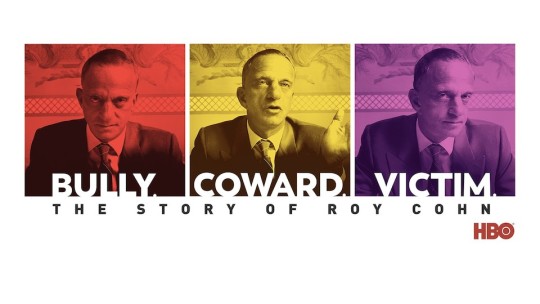
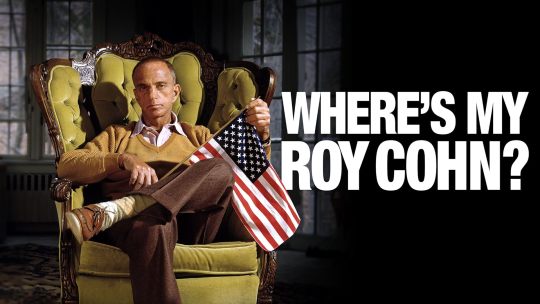
Bully. Coward. Victim. (2019) and Where's My Roy Cohn? (2019) - Both of these documentaries focus on the life of Roy Cohn, from his time at the McCarthy hearings, to his time as the Studio 54 lawyer, to his work during the Reagan era and his eventual death from AIDS. Where's My Roy Cohn? also focuses in on Roy Cohn's working relationship with Donald Trump. "Bully. Coward. Victim. was produced by the granddaughter of Julius and Ethel Rosenberg and as such, it also focuses more on the lasting impact of Cohn's role in their executions. There's a lot of overlap between the two documentaries, but I think they're both worth watching if you can.
--
If you want to see more stories of gay men in the 1950s:
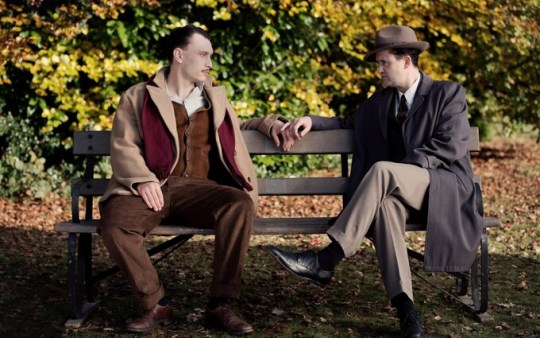
Against the Law (2017) - This is a biopic about Peter Wildeblood, a man who was put on trial for homosexuality and who, remarkably, acknowledged that he was gay during the trial. This trial and Wildeblood's later actions, are considered pivotal in the movement toward decriminalizing homosexuality in the UK. The movie takes place mostly in the 1950s and, again, deals with queer men trying to find love in a time in which laws, social norms, etc. made it exceedingly difficult to do so. The drama is interspersed with interviews in 2017 with real queer men who were alive at the time of the trial.
--
If you want to see more stories of ruthless politicians trying to hide that they're gay:
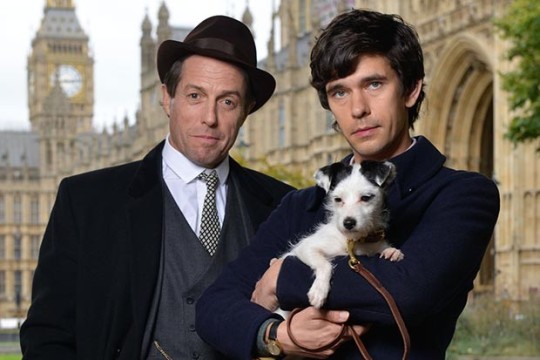
A Very English Scandal (2018) - As the title suggests, this miniseries takes place in the UK. It's based on a true story...even the more outlandish moments. Jeremy Thorpe (Hugh Grant) is a career politician who's been hiding that he's gay for decades. He's developed a ruthlessness and callousness to his own situation and he, predictably, treats everyone around him as disposable. Then along comes Norman Scott (Ben Whishaw), a young man who Thorpe is instantly attracted to. But Scott struggles with self-acceptance and mental health issues, and Thorpe has no compassion nor patience for any of that. The result is a dark comedy about this doomed relationship alongside the change to the law in the UK to decriminalize homosexuality.
--
If you want to see more stories of queer folks in the 1980s:

It's A Sin (2021) - This is a miniseries that follows a group of queer folks during the 1980s in London. It's all about their search for love and finding themselves and whatnot, even as they are forced to deal with HIV and AIDS. It's a good show that is worth a watch, especially if you haven't seen much else about being queer in the '80s.
--

Angels in America (2003) - Of course Angels in America was going to end up on this list. It is one of the definitive pieces of fiction on living in New York during the AIDS crisis. The play was originally performed in 1991...just four years after AZT was approved for use in the US to treat HIV and AIDS. It's big, and complex, and as much about the state of the U.S. at the time as it is about these individual characters and their lives. Also, Roy Cohn shows up, working as a political operative for Reagan. It really is, as it's subtitle says, "A Gay Fantasia on National Themes."
#fellow travelers#bully coward victim#where's my roy cohn#against the law#a very english scandal#it's a sin#angels in america
125 notes
·
View notes
Note
It's been a few(?) weeks but I think what irks me about the Oppenheimer spectacle is that I'd find it very hard to believe that Hollywood (as it stands today) would ever make anywhere close to such a big highlight promotion to a movie dedicated to say, the Rosenberg trials.
The USA executed a Jewish couple on flimsy suspicions that they were leaking atom bomb secrets to their enemies (the atom bomb that America gladly hired "former" n-zi scientists to help make)
The US wasn't even at any formal war at the time, it was officially peacetime, but they deemed this Jewish couple enough of an enemy to murder them for getting in the way of making the A-bomb.
The executive choices for which parts of history receive these gigantic and public-conscious-defining spectacles on the most massive media platforms is very curious to me.
Yeah and like.... it's not like the movie depicted the creation of the atom bomb in an angle that isn't really depicted in film. They could have focused on the ethical conflicts the Jewish scientists, such as Oppenheimer and Einstein felt, as well as the feeling of urgency they felt because of the Holocaust (remember, the Jews recruited were recruited because the US knew their rage and wanting to bomb Nazis and wanted to exploit it). But instead the movie barely acknowledges Oppenheimer or Einstein or any of the other Jewish scientists' Jewishness.
Like, it's honestly lazy telling a story that's already been told in film so many times before. Talk about the aftermath of the testing in New Mexico, or the aftermath of the bombing in Japan. Talk about the Jewish scientists and how their identities interacted with the Manhattan project and the antisemitism they faced. Talk about the post-WW2 Red Scare and how it disproportionately targeted Jews, Black people, and gay people. Where's the nuance, the focus on the untold parts?
142 notes
·
View notes




